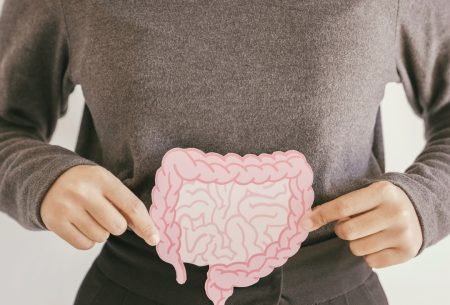It’s often foods that are demonised as being ‘bad for the gut’ – whether it’s gluten, sugar, or even gut-loving grains (I’m looking at you, paleo diet) – yet lifestyle factors that can play a big part are easily overlooked.
Without getting all doom and gloom, it’s important for everyone to be empowered with the knowledge of your gut microbes’ weak spots.
Before we dive in, let me tell you your gut is incredibly adaptable – so if you’ve been affected by the following factors and you’re getting troublesome gut symptoms, it doesn’t mean your gut is ‘ruined’ for life!
It does mean that it’s worth thinking about how certain activities or behaviours could negatively impact your GM (gut microbiota, the trillions of microbes in your gut) – and focusing on nourishing your gut with plenty of plant diversity, alongside sleep, relaxation and exercise.
Here are 5 things worth knowing that can negatively impact the health of your gut – and what you can do to get your gut back to good health.
- Antibiotics
It goes without saying that antibiotics can be life-saving – but taking antibiotics when they’re not really needed (e.g. for mild infections or viruses) can impact your gut microbes unnecessarily. That’s because they don’t just get rid of the ‘bad’ guys, but can harm the ‘balance’ of beneficial gut microbes too. Studies show these changes could be long-term in some people, particularly with multiple courses of antibiotics, where some of the bacteria don’t seem to ‘repopulate’ even 12 months post antibiotics.
Top tip: Try taking a specific probiotic during your antibiotics course and for a week after: Saccharomyces boulardii, 5 billion CFU twice a day (check out my Probiotic Prescriptions for more detail). And keep up your plant diversity – aiming for at least 30 plant points a week. In fact, one study found that people who ate more than 30 plants a week (vs 10 a week) also had fewer antibiotic resistance genes in their GM!
- Medication
Similarly to antibiotics, other medications can without a doubt be extremely important. However, one study showed that around a quarter of non-antibiotic medications (such as painkillers, antihistamines or proton pump inhibitors) could impact the growth of our GM when tested in the lab. And with over 50% of people in the UK taking at least one prescribed medication (not including contraception) – it’s worth taking note.
Top tip: Are your meds for a lifestyle condition that could be helped through diet? If yes, chat to your healthcare team for advice on managing by changing your lifestyle – whether it’s working on your sleep quality or getting more exercise (alongside meds, as long you need them) – and see how you go.
- Restrictive diets
The biggest myth when it comes to looking after your gut is that you need to have a restrictive diet. Juice diets and ‘detox’ cleanses are nonsense when it comes to gut health, and they can actually do more harm than good.
How? Cutting out whole food groups – for example cutting out whole grains and legumes on the paleo diet – can essentially ‘starve’ some of your GM. Studies show your GM can change within a few days of following an extreme diet.
It may also increase your risk of nutritional deficiencies.
Top tip: Think about what you can add in, not what you cut out. Focus on inclusivity, moderation and getting plenty of plant diversity (another reason why all our recipes are designed to keep your plant points up!)
- Poor sleep
Our GM has its own body clock too (i.e. circadian rhythm), so disturbed sleep can disrupt our microbes – even after just 2 days of getting less sleep than we need.
Sleep deprivation is linked with both increased inflammation and stress hormones (which can worsen gut symptoms), as well as how much we eat (particularly of the ultra-processed foods!).
Top tip: Focus on improving your sleep quality, aiming to get 7-9 hours a night. Try keeping your caffeine intake to before 3pm, switching off devices at least 30-60 minutes before bed, and sticking to a routine with the same sleep and wake times.
- Stress
Managing stress levels is one of the most important factors in a healthy gut – and it’s all thanks to the gut-brain axis (the two-way communication between the gut and the brain).
How does stress affect the gut? When you’re feeling stressed, because your brain is saying you are, this message travels down to the gut and can manifest in gut symptoms, such as bloating, reflux, constipation and other common gut complaints.
Top tip: Take 15 minutes out of your day for breathing and/or mindfulness exercises. It’s worth sticking with it for at least 12 weeks to see the effects.













